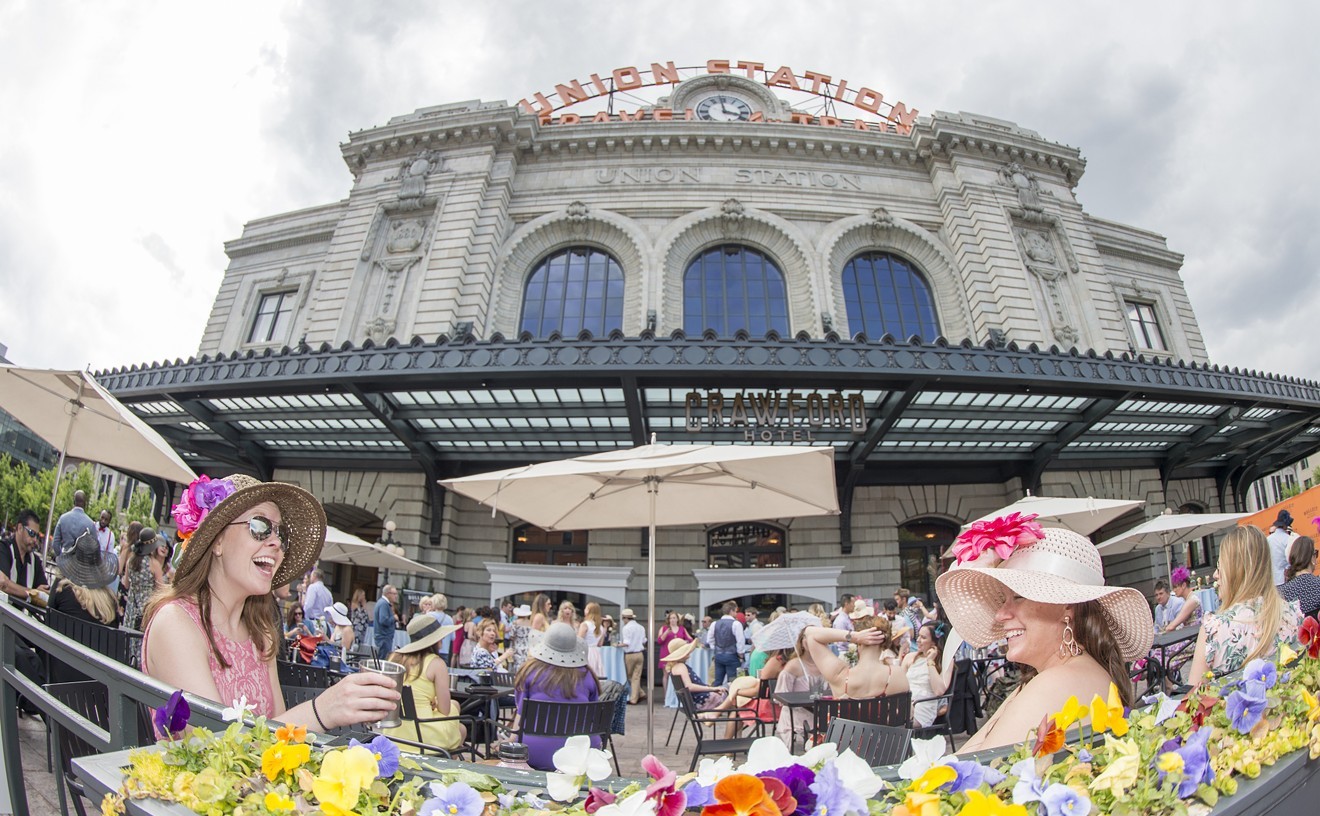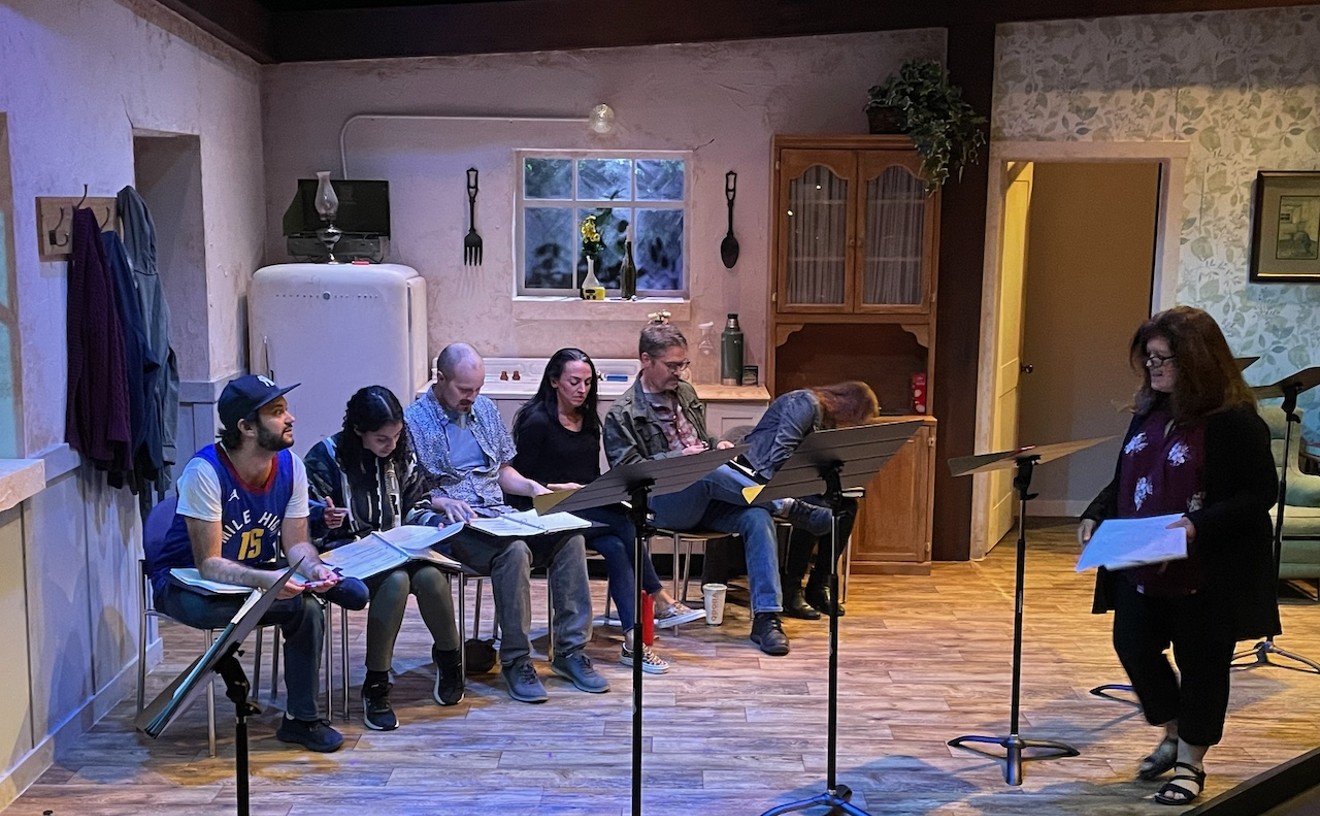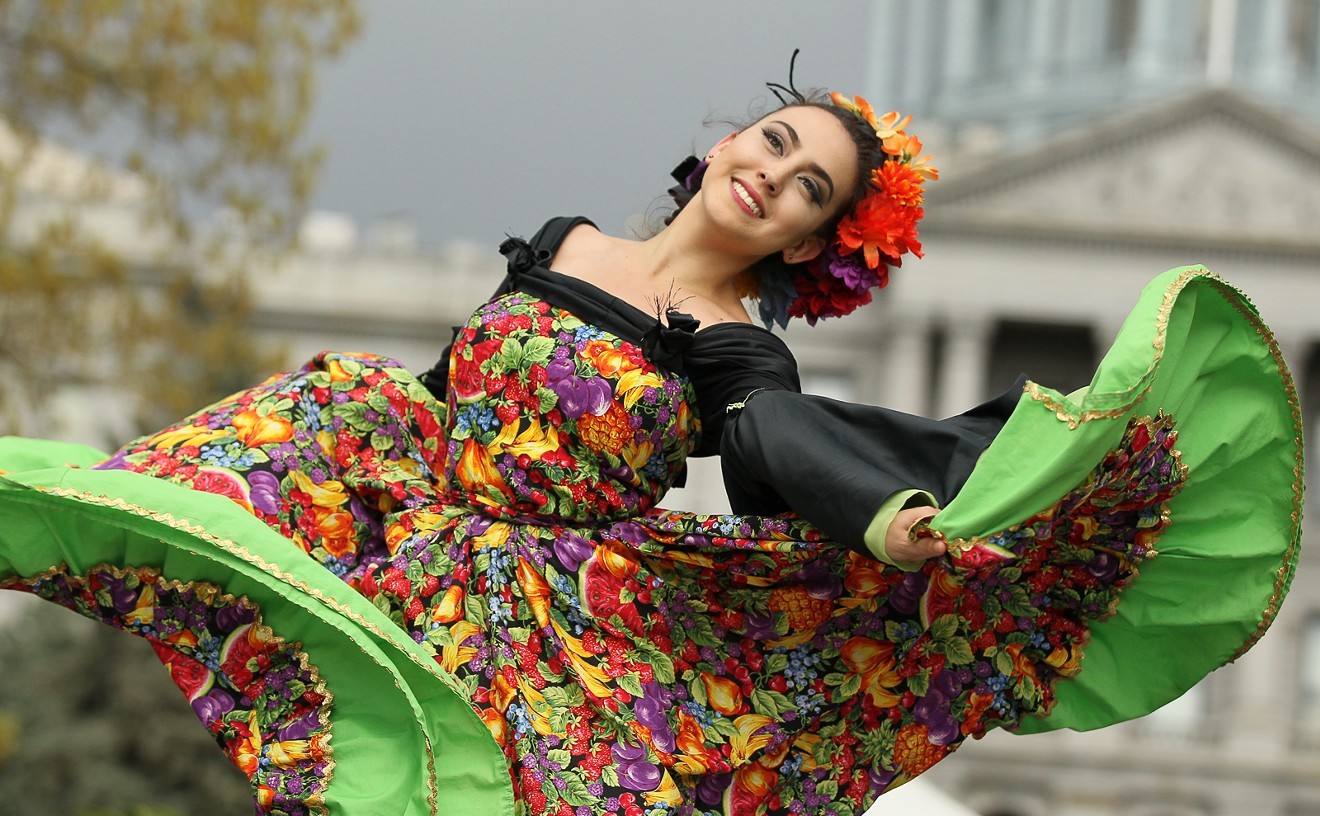See also: Shawn McDonald on summer camp, the tattoo renaissance and "Making the Mountain"
Westword: How did you become interested in tattooing?Jason Boatman: My uncle had tattoos when I was young, and I remember being at my grandmother's house when I was maybe eight or nine years old and him coming in and showing off his new tattoo on his chest, and I thought it was just the coolest thing I had even seen in my life. I was a kid, I was like, "That would be cool. I would love getting tattoos. I want to have those."
As I started becoming a young adult, I thought, "Hey, I always wanted to get a tattoo. I remember my uncle getting tattoos and it being cool." So I just kind of started from there as far as getting tattooed. I got my first tattoo in my living room from a biker. And then a friend of mine saw it and saw that it wasn't very good and said, "You should come and check out these tattoo shops with me." And he took me and showed me a couple tattoo shops, one of which I ended up apprenticing at. That's what kind of pushed me down the road to tattooing.
As far as actually getting into tattooing itself, I thought about it for a while. I started getting tattooed at this shop and thought it would be really cool to be able to do tattoos. And I used to draw in school and stuff. But the shop that I was going to was really small and I didn't feel like they had the capacity to apprentice someone, so I was kind of scared to ask. Over a couple of years I got to be really good friends with the piercer who worked at that shop. It turns out her dad actually owned the shop and he was one of the tattooers there. A few years down the road, a couple of guys quit working there and I kind of felt like it was an opportunity for me to maybe try to get in there and become a tattooer, and I went down and talked to him about it. He didn't really want to give me a job and I just started showing up every day and didn't leave. Finally, after a month or two of showing up every day and not asking for anything and just going in there and working and trying to be helpful, finally the gentleman who apprenticed me decided to give me an opportunity. That was a long time ago.
Do you remember the first tattoo you ever gave someone?
It was on a young lady that I went to school with. I wasn't even technically apprenticing yet, and she came to the tattoo shop. I was there with the guy who owned the shop and I was helping him out one night. She came in with a couple of friends and she was like, "Oh my gosh, I didn't know you did tattoos." And I was like, "I don't really do tattoos yet." The guy who owned the shop was like, "Do you think you can do her tattoo?" So I said, "Yeah I think I can do it." So he told me to go for it.
Man, looking back on it, I don't know what I was thinking. I had no idea what I was doing. I gave her a really, really bad tattoo on her toe. At the time I didn't know that's a really bad place to try to put a tattoo to begin with. It's a really difficult place to do a good job. So I did a really bad job and I felt really bad and I knew it was messed up. I went and asked my boss to fix it and he got a big kick out of it, thought it was really funny. She wouldn't let him fix it. She wanted to keep this really crappy tattoo that I did on her as a reminder of my first tattoo. She's a good sport, man. She's a sweet girl and it was really cool for her to believe in me. Even though I did a bad job, she was still super-happy with it just because of the experience. Continue reading for the rest of the Q&A with Jason Boatman. Do you think people don't realize how hard it actually is to give someone a tattoo?Absolutely. Although it's gotten easier. The application isn't really easier nowadays, but the education and the equipment are so much better than back then. Back in the day, they just kind of threw you to the wolves. They just gave you some stuff and said, "Well, go figure it out." Nowadays people get better direction, better education -- some people, not all of them. I definitely think that it's way harder to do a nice tattoo than most people think. I think most people see qualified tattooers doing tattoos -- just like I did -- and think, "Oh, well, that doesn't look that hard. He's just kind of drawing on the skin there." There's so many things that you don't take into consideration when you don't know what you're doing that are definitely very important factors in giving a tattoo.
Do you think it's hard to set yourself apart in the tattoo industry, as a shop or an artist?
I do think it can be kind of difficult to set yourself apart as an artist. As a shop, not as much. I think if you do good tattoos, the shop will stand out as a whole. But as an artist, I do think it's very difficult to stand out because the pool is so much bigger nowadays. Ten years ago the tattoo pool -- the amount of people who were doing tattoos -- was probably half of what it is now. When you put that many more people in the pot, sometimes it takes a little more time to make your way through it and find the ones who are good. But as a tattooer, with a lot of hard work and dedication you can kind of rise to the top of that pool. Even though I think there's an overabundance of tattooers, there's still only a handful of really good tattooers. I think it's definitely hard as a newcomer to set yourself apart.
Do you think people have misconceptions or stereotypes about being a tattoo artist?
I think you still get a little bit of that. I definitely think it's changed a lot in the last ten years or so. I think tattooing being on TV now for almost ten years has definitely changed the perception that most people have about people with tattoos. Fifteen or twenty years ago, you were a biker or in the circus or some sort of guy who's been to prison. It definitely had a stereotype that went with it. But I think those barriers are being broken down every day. When I first got into tattooing, my parents weren't very excited about it. They didn't think that it was a very wise choice on my behalf because they had those stereotypes of people who were bad and nothing good was going to come from it. And here I am now: I haven't borrowed any money from my parents since I became a tattooer -- almost fourteen years -- and we own a business and have been successful. As all of these people have started getting tattoos; it's changed the perception that they're bad or ex-cons or drug dealers. And they're not. They're just people who are trying to make a living, do art and be creative and just be independent.
What are your favorite styles of tattoo to work in?
I think my favorite styles to work in would be traditional American or Japanese. I used to say traditional Japanese, but I don't know if what I do is traditional. It's just my version of Japanese style. I do admire other styles of tattooing, but Americana and Japanese are what I've spent the majority of my career doing.
As an artist, do you think it's more important for tattoos to have meaning or to look good aesthetically?
I personally think that it should be more around what looks good. Tattoos that have a lot of significant meaning are great for some people and I know they bring a lot of joy to certain people because they have such meaning attached to it. But I've always been a fan of just getting something that looks cool; letting the artist do something that's gonna fit well on the body or work with what you're going for. I definitely think that's important.
Outside of tattooing, do you get to do other types of art or pursue any other passions?
Most of my art is tied to tattooing. I think years ago I might have done some art that was aside from tattooing, but over the years it just becomes your medium -- for me, anyway. I do some painting, some watercolor, acrylic, stuff like that, but 99.9 percent of the time it is influenced by tattooing or has something to do with tattooing. I don't branch out too far from that. I think about it every once in a while, but I never find myself actually doing it.
For more information, visit the Dedication website or follow Boatman on Instagram @jasonboatman.










